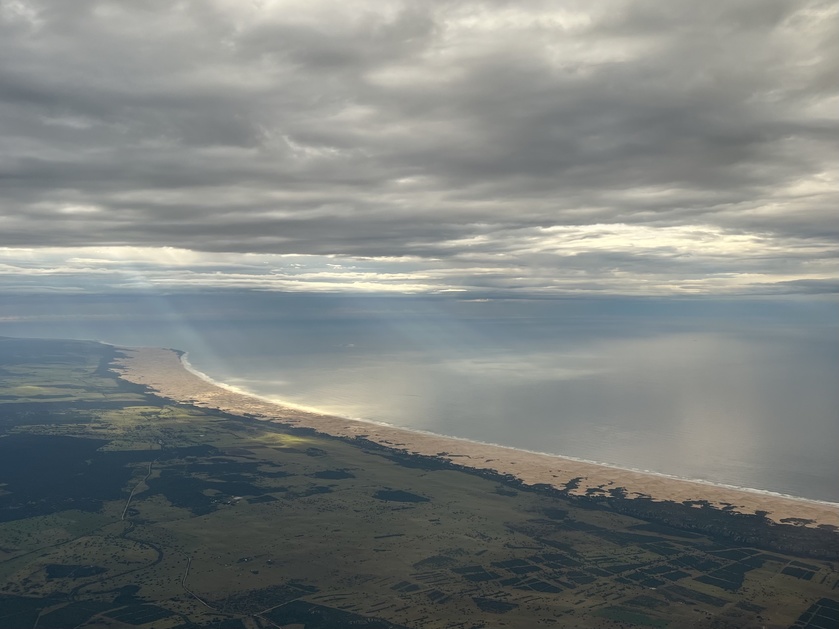Yesterday, I accompanied my cousin to the gravesite of her dad, my uncle, whom she barely knew, in Port Elizabeth (Gqberha). She had never been there before; it was incredibly meaningful to help her make that connection.
I had been to the grave before. It sits alongside a coastal road, which in turn runs through PE's industrial core, and its port on the Algoa Bay. It is generally a gritty city, built by coal and rail, and often buffeted by blustering winds.
Yet it was quite wonderful on Sunday morning -- warm and humid, with a thin layer of clouds providing a bit of shade. On the beach, swimmers of every color competed in local races; boxers sparred; children ran and played games.
The low tide made the beachfront especially beautiful. Families lounged in tidepools, safe behind the rocks from the Indian Ocean waves. Dogs waded through the shallow water. Fishermen cast their rods; surfers braved the break.
I finally felt a sense of peace that had eluded me -- both in my first hectic two days in Cape Town (where I am back, now, writing this), and in Johannesburg, which is a study in chaos. Then it was back to the airport, and Cape Town...
This week’s portion launches the great story of Abraham, who is told to leave everything of his life behind — except his immediate family — and to leave for “the Land that I shall show you.”
There’s something interesting in the fact that Abraham is told to leave his father’s house, as if breaking away from his father’s life — but his father, in fact, began the journey, moving from Ur to Haran (in last week’s portion). His father set a positive example — why should Abraham leave him?
Some obvious answers suggest themselves — adulthood, needing to make one’s own choices, his father not going far enough, etc.
But I think there is another answer. Abraham (known for the moment as Abram) needs to establish his own household. This is not just about making one’s own choice, but really about choosing one’s own starting point. It’s starting over.
Sometimes we start over in fundamental ways even if much that surrounds us remains the same. Sometimes the journey we have to ...
The story of Noah is familiar; the details, less so.
Noah is often seen as an ambivalent figure. He was righteous -- but only for his generation. What was his deficiency?
One answer suggests itself: knowing that the world was about to be flooded, he built an Ark for the animals and for his own family -- but did not try to save anyone else or to convince them to repent and change their ways (the prophet Jonah, later, would share that reluctance).
Abraham, later, would set himself apart by arguing with God -- with the Lord Himself! -- against the destruction of Sodom and Gomorrah, saying that they should be saved if there were enough righteous people to be found (there were not).
Still, Noah was good enough -- and sometimes, that really is sufficient to save the world. We don't need heroes every time -- just ordinary decency.
Hi all -- as I noted last month, I'm going to be closing down my Locals page, at least for tips and subscriptions -- I may keep the page up and the posts as well, but I'm no longer going to be accepting any kind of payment.
Look for cancelation in the very near future. Thank you for your support!

















